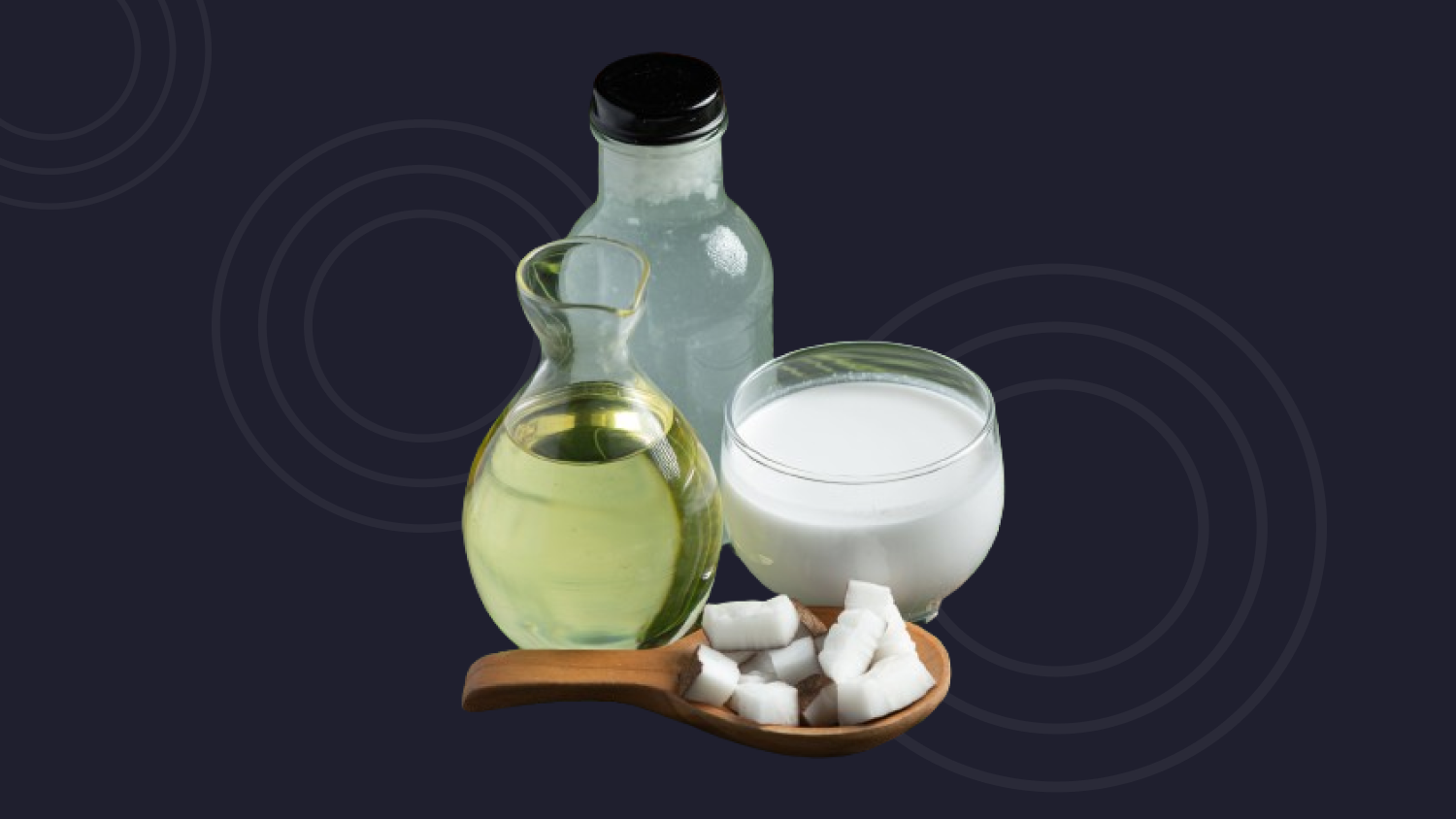
Palm Oil for Health
Palm Oil for Health
Ever wondered what's in your favorite foods or cleaning supplies? You might find palm oil hiding in there! It's a very popular oil used in many everyday products. Let's explore what palm oil is and how it affects you.
Where does palm oil come from?
The palm trees grow a flavorful fruit, that is pressed out for a special oil – that's palm oil! Palm oil, derived from the fruit of the African oil palm tree, has become a culinary staple worldwide. Its unique properties—semi-solid at room temperature, resistant to oxidation, and heat-tolerant—make it a popular choice for cooking and food products.
What are the benefits of palm oil?
1. Vitamins E and A:
Palm oil is a rich source of vitamin E, a powerful antioxidant. It supports healthy skin, boosts immunity, and may even protect against heart disease.
Vitamin A: Essential for vision, vitamin A in palm oil contributes to eye health.
2. No trans fats:
Unlike some other oils, palm oil doesn’t contain harmful trans fats. This makes it a better choice for heart health.
3. Antioxidants:
Palm oil’s antioxidants defend your body’s cells from oxidative damage. Think of them as your cellular bodyguards!
4. Quick energy boost:
Need a pick-me-up? Palm oil provides a rapid energy infusion, perfect for those sluggish moments.
5. Brain health:
While more research is needed, some believe palm oil supports brain health as we age.
To know if you should use palm oil in your diet, consult a dietitian visit.
What are the things to keep in mind about palm oil?
Everything has two sides, and palm oil is no different.
1. High in saturated fat: Palm oil contains a high proportion of saturated fat. Consuming excessive saturated fat can raise LDL (often called "bad") cholesterol levels, which is a risk factor for heart disease.
2. Calorie-dense: Palm oil is high in calories like all fats. Overconsumption could contribute to weight gain.
3. Processing effects: Refining palm oil can strip away some of its beneficial components, like vitamins and antioxidants.
4. Potential allergies: While rare, some individuals may be allergic to palm oil.
What do doctors suggest?
Doctors say palm oil in moderation is okay for consumption, but don't go overboard. Think of it like a special treat – enjoy it sometimes, but don't make it your everyday friend. Less processed palm oil, like the one with a reddish color, is even better because it has more of the helpful things left in it. It's also a great idea to use different types of oil when you cook your meals. If you have any health concerns, consult with your doctor about palm oil to see if it's a good fit for you. Scientists are always learning more about palm oil, so there might be even more to discover in the future!
Palm oil and our world:
The story of palm oil isn't just about you and your body. It also affects the world around us too! Here's where things get a little more complex.
1. Deforestation: Palm oil is estimated to be responsible for approximately half of all deforestation in several Asian countries. Clear-cutting forests for agriculture emit greenhouse gasses, destroy habitats, and threaten biodiversity.
2. Pollution: The large-scale production of an agricultural commodity, such as palm oil, ultimately causes runoff and degradation of neighboring soil and waterways. Deforestation of palm oil crops contributes significantly to air pollution.
3. The loss of biodiversity: Many bird, elephant, orangutan, and tiger populations in palm oil-producing countries are becoming increasingly threatened or endangered due to deforestation and habitat degradation.
4. Aids in global warming: Clear-cutting forests for palm oil plantations contributes to global warming by emitting excessive amounts of greenhouse gases into the atmosphere.
5. Unstoppable expansion and output: Palm oil demand is expected to continue to rise over the next decade. Production could increase by 100% or more in some locations, only worsening its environmental impact.
On the bright side, growing palm trees give jobs to people in some countries. So, it's not all bad news.
What can you do?
Here's how you can be a smart shopper when it comes to palm oil.
First, become a label detective. Check the ingredients list on your food and other products to see if they contain palm oil. Cooking your food gives you more control over what goes into your meals. Don't be shy to ask companies where their palm oil comes from – you have the right to know! And the most important thing? Keep learning about palm oil! The more you know, the better choices you can make.
Conclusion
The story of palm oil shows us how everything is connected. The things you eat can affect you, the environment, and even people far away. By being smart about your choices and supporting good practices, you can help make a positive difference! You can still enjoy foods with palm oil in them, but just take it easy. Be informed, make good choices, and be part of a solution for a healthier you and a healthier planet!
FAQ
1. Is palm oil the same as coconut oil?
No, palm oil and coconut oil are derived from distinct portions of the palm tree. Palm oil is taken from the fruit of the oil palm tree, whereas coconut oil is derived from the coconut fruit. They have various nutritional profiles and applications. At room temperature, coconut oil is solid, but palm oil can be liquid or semisolid depending on processing conditions.
2. Can palm oil be used in skincare?
Yes! Palm oil includes vitamin E, which promotes skin health. It hydrates and protects the skin. To protect the environment and animals, use palm oil products that have been responsibly obtained. Look for the RSPO (Roundtable on Sustainable Palm Oil) mark on skincare products to ensure ethical manufacturing.
Related Topics
Categories
All
Mutual Funds
NPS
Health Insurance
EPF
Chat with us
